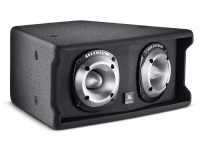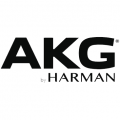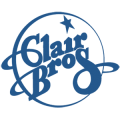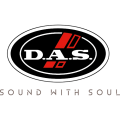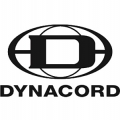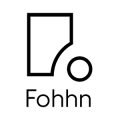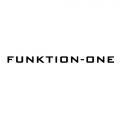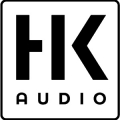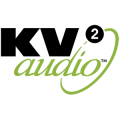ABOUT THE PRODUCT
ABOUT THE MANUFACTURER
GLOSSARY
Marquis Dance Club Series MD1
Super Tweeter Loudspeaker
JBL's Marquis Dance Club Series is a state-of-the-art family of loudspeaker systems designed specifically for the Dance Club Market. MD1 is an ultra highfrequency module consisting of dual JBL Selenium ST400 Super Tweeters for superior highfrequency response and is intended to be used in conjunction with the MD2 midhigh system, MD3 low-frequency system, and MD7 ultra highoutput subwoofer system. When all elements are combined they complete a high energy five-way dance system with unprecedented fidelity, clarity and breathtaking purity.
Features
- Dual JBL Selenium ST400 Super Tweeters
- Extremely high sensitivity
- Low Distortion
- High fidelity
- High temperature voice coil for durability and reliability
Applications
- Sophisticated dance clubs
- Anywhere dramatic use of super high-frequency is desired
Marquis Dance Club Series MD2
Bi-Amplified, High Power Loudspeaker System
JBL's Marquis Dance Club Series is a state-of-the-art family of loudspeaker systems designed specifically for the Dance Club Market. MD2 is a mid-high module utilizing two of JBL’s eight inch 2169H Differential Drive® transducers for mid-band reproduction and the 2453H-SL for high-frequencies, the MD2 handles frequencies from 300 Hz to 20 kHz. The MD2 is intended to be used in conjunction with the MD1 super tweeter, MD3 low-frequency system, and MD7 ultra high-output subwoofer system. When all elements are combined they complete a high energy five-way dance system with unprecedented fidelity, clarity, and breathtaking purity.
Features
- Dual JBL 2169H 8" Neodymium Differential Drive® mid-range drivers
-
Large format JBL 2453H-SL
4" damped titanium diaphragm compression driver - Low Distortion
- High Fidelity
Applications
- Sophisticated dance clubs
- Anywhere high energy dance music is required
Marquis Dance Club Series MD3
High Power Dual 15" Low Frequency Loudspeaker
JBL’s Marquis Dance Club Series is a state-of-the-art family of loudspeaker systems designed specifically for the Dance Club Market. MD3 is a dual 15" lowfrequency system utilizing dual 2265H Differential Drive transducers in a horn-loaded enclosure providing high-output frequency response from 300 Hz down to 80 Hz. The MD3 is intended to be used in conjunction with the MD1 super tweeter, MD2 mid-high system, and MD7 ultra high-output subwoofer system. When all elements are combined they complete a high energy five-way dance system with unprecedented fidelity, clarity, and breathtaking purity.
Features
- Dual JBL 2265H 3” dual voice coil – dual magnetic gap Differential Drive® woofers
- 1600 watts continuous pink noise, 6400 watts peak power handling
- Low Distortion
- High Fidelity
Applications
- Sophisticated dance clubs
- Anywhere high energy dance music is required
Marquis Dance Club Series MD7
Ultra Long Excursion High Power Dual 18" Subwoofer
JBL’s Marquis Dance Club Series is a state-of-the-art family of loudspeaker systems designed specifically for the Dance Club Market.The MD7, dual 18" subwoofer system is fitted with two JBL 2269H Differential Drive, Vented Gap Cooling capable of generating frequency response to 25 Hz in a sonically superior and visually imposing dance floor system. The MD7 is intended to be used in conjunction with the MD1 super tweeter, MD2 mid-high system, and MD3 low-frequency system. When all elements are combined they complete a high energy five-way dance system with unprecedented fidelity, clarity, and breathtaking purity.
Features
- Dual JBL 2269H 4" dual voice coil – dual magnetic gap Differential Drive® woofers with Vented Gap Cooling
- 4000 watts continuous program power handling
- Horn-loaded enclosure for low distortion
- Ultra low-frequency response with true sub-bass extension
Applications
- Sophisticated dance clubs
- Anywhere high energy dance music is required
Professional used lighting equipment.| Professional second hand lighting equipment.| Professional pre owned lighting equipment.
Professional used audio equipment.| Professional second hand audio equipment.| Professional pre owned audio equipment.
Second hand audio gear. | Second hand lighting.
Pro audio equipment, second hand amplifiers, DJ, second hand sound systems, second hand Microphones, second hand Media Players.
Outdoor & Indoor LED screens for sale, LED mobile truck.
Light trussing, Gebrauchte Veranstaltungstechnik, used stage equipment Stage & Theatre lighting products.
Used JBL
JBL is an American company that manufactures audio equipment, including loudspeakers and headphones. There are two independent divisions within the company; JBL Consumer produces audio equipment for the consumer home market, while the JBL Professional produces professional equipment for the studio, installed sound, tour sound, portable sound (production and DJ), and cinema markets. JBL is owned by Harman International Industries, a subsidiary of South Korean company Samsung Electronics.
JBL was founded by James Bullough Lansing (1902–1949) who was an American audio engineer and loudspeaker designer most notable for establishing two audio companies that bear his name, Altec Lansing and JBL, the latter taken from his initials.Early products included the model 375 high-frequency driver and the 075 ultra high frequency (UHF) ring-radiator driver. The ring-radiator drivers are also known as "JBL bullets" because of their distinctive shape. The 375 was a re-invention of the Western Electric 594 driver but with an Alnico V magnet and a four-inch voice coil. The 375 shared the same basic magnet structure as the D-130 woofer. JBL engineers Ed May and Bart N. Locanthi created these designs.
In 1955 the brand name JBL was introduced to resolve ongoing disputes with Altec Lansing Corporation. The company name "James B. Lansing Sound, Incorporated", was retained, but the logo name was changed to JBL with its distinctive exclamation point.
The JBL 4320 series studio monitor was introduced through Capitol Records in Hollywood and became the standard monitor worldwide for its parent company, EMI. JBL's introduction to rock and roll music came via the adoption of the D130 loudspeaker by Leo Fender's Fender Guitar Company as the ideal driver for electric guitars.
In 1969, Thomas sold JBL to the Jervis Corporation (later renamed "Harman International"), headed by Sidney Harman. The 1970s saw JBL become a household brand, starting with the famous L-100, which was the best-selling loudspeaker model of any company to that time. The 1970s were also a time of major JBL expansion in the professional audio field from their studio monitors.
By 1977, more recording studios were using JBL monitors than all other brands combined, according to a Billboard survey.[5] The JBL L-100 and 4310 control monitors were popular home speakers. In the late 1970s, the new L-series designs L15, L26, L46, L56, L86, L96, L112, L150, and later the L150A and flagship L250 were introduced with improved crossovers, ceramic magnet woofers, updated midrange drivers, and aluminum-deposition phenolic resin tweeters.
In the mid-1980s the designs were again updated and redesigned with a new titanium-deposition tweeter diaphragm. The new L-series designations being the L20T, L40T, L60T, L80T, L100T, the Ti-series 18Ti, 120Ti, 240Ti, and the flagship 250Ti. To test speaker drivers, JBL in Glendale and Northridge used the roof as an outdoor equivalent to an anechoic chamber.
Over the next two decades, JBL went more mass-market with their consumer (Northridge) line of loudspeakers. At the same time, they made an entry into the high-end market with their project speakers, consisting of the Everest and K2 lines.
JBL became a prominent supplier to the tour sound industry, their loudspeakers being employed by touring rock acts and music festivals.
JBL products were the basis for the development of THX loudspeaker standard, which resulted in JBL becoming a popular cinema loudspeaker manufacturer.
Professional used lighting equipment.| Professional second hand lighting equipment.| Professional pre owned lighting equipment.
Professional used audio equipment.| Professional second hand audio equipment.| Professional pre owned audio equipment.
Second hand audio gear. | Second hand lighting.
Pro audio equipment, second hand amplifiers, DJ, second hand sound systems, second hand Microphones, second hand Media Players.
Outdoor & Indoor LED screens for sale, LED mobile truck.
Light trussing, Gebrauchte Veranstaltungstechnik, used stage equipment Stage & Theatre lighting products.
Octave: The difference between two frequencies where one is twice the other. For example, 200 Hz is an octave higher than 100 Hz. 400 Hz is one octave higher than 200 Hz.
Optical Digital Cable: Fiber optic cable that transfers digital audio signals as light pulses.
Outcue/Outq/Out-Point: These words all refer to the final few seconds of audio signifying the conclusion of the production.
Package: A completed and fully edited audio piece.
Passive: Not active. A passive crossover uses no external power and results in insertion loss. A passive speaker is one without internal amplification.
Phase: Time relationship between signals it’s all relative.
Power Output: A measure, usually in watts, of how much energy is modulated by a component.
Preamplifier: A control and switching component that may include equalization functions. The preamp comes in the signal chain before the amplifiers.
Pre Outs: Connectors that provide a line-level output of the internal preamp or surround processor.
Pre Outs/Main Ins: Connectors on a receiver that provide an interruptible signal loop between the output of the internal preamp or surround processor portion of the receiver and the input of the amplifier portion of the receiver.
Pre/Pro: A combination preamp and surround processor.
Processors: Anything that processes an incoming signal in some way. Surround processors, for example, can decode a Dolby Digital signal to send to an amp so you can hear it.
Pulse Code Modulation: (PCM) a way to convert sound or analog information to binary information (0s and 1s) by taking samples of the sound and record the resulting number as binary information. Used on all CDs, DVD-Audio, and just about every other digital audio format. It can sometimes be found on DVD-Video.
Q-and-A: Question and answer session.
Receiver: Any component that receives, or tunes, broadcast signals, be it NTSC, HDTV, DBS, or AM/FM radio. Typically refers to the single component that includes a preamp, surround processor, multichannel amplifier, and AM/FM tuner.
Reverberation: The reflections of sound within a closed space.
RF: Radio Frequency. Television signals are modulated onto RF signals and are then demodulated by your television’s tuner. VCRs and DBS receivers often include channel 3 or 4 modulators, allowing the output signal to be tuned by the television on those channels. Also, laser discs used an RF signal for modulating Dolby Digital 5.1 soundtracks on some movies. This requires an RF demodulator (usually referred to as an AC3-RF demodulator) before or in the surround processor to decode the signal.
RMS: Root Mean Square or the square root of the arithmetic mean (average) of the square’s set of values. A reasonably accurate method of describing an amplifier`s power output.
SACD: Super Audio CD. Enhanced audio format with up to six channels of high-resolution audio encoded using DSD. Requires an SACD player. Multichannel also requires a controller with six-channel analog or proprietary digital inputs for full playback.
Sampling Frequency: How often a digital sample is taken of an analog wave. The more samples taken, the more accurate the recording will be. You need to sample at a minimum of twice the highest frequency you want to capture. For example, the 44.1-kilohertz sampling rate of a CD cannot record sounds higher than 22.05 kilohertz.
Scener: A radio report in which the announcer is recorded at the same time and place as the background sound of an event.
Sensitivity: A measurement (in dB) of the sound-pressure level over a specified frequency range created by a speaker driven by 1 watt (2.83V at 8 ohms) of power with a microphone placed 1 meter away.
Signal-to-Noise Ratio: A comparison of the signal level relative to the noise level. Larger numbers are better.
Simultaneous Interpretation: This system allows attendees to hear the meeting in their own language.
Sound Bite: A portion of audio of someone speaking.
Sound field: The total acoustical characteristics of a space, such as ambience number, timing, and relative level of reflections ratio of direct to reflected sound RT-60 time etc.
Soundstage: The area between two speakers that appears to the listener to be occupied by sonic images. Like a real stage, a soundstage should have width, depth, and height.
Speaker: A component that converts electrical energy into acoustical energy.
SPL: Sound-Pressure Level. Measured in dB.
Subwoofer: A speaker designed to reproduce very low bass frequencies, usually those below about 80 Hz.
THX: Certification program for home theater equipment. Uses some proprietary features, but mostly assures a base quality level for a given room size. (See THX select or Ultra.) Is compatible with any and all soundtrack formats. Stands for either Tom Holman’s eXperiment, after the engineer who drafted the original standard, or is named after the company’s founder George Lucas first movie, THX 1138. Nobody agrees on which.
THX select: Certification program for speakers and receivers that assures a base level of quality and performance when played in a room that’s between 2,000 and 3,000 cubic feet.
User-Generated Content (UGC): Text, photos, video or audio supplied by the customers of a company.
Voicer: A radio report without background audio taken from a scene or otherwise.
Wrap: A radio report containing both the reporter and an actuality.
Professional used lighting equipment.| Professional second hand lighting equipment.| Professional pre owned lighting equipment.
Professional used audio equipment.| Professional second hand audio equipment.| Professional pre owned audio equipment.
Second hand audio gear. | Second hand lighting.
Pro audio equipment, second hand amplifiers, DJ, second hand sound systems, second hand Microphones, second hand Media Players.
Outdoor & Indoor LED screens for sale, LED mobile truck.
Light trussing, Gebrauchte Veranstaltungstechnik, used stage equipment Stage & Theatre lighting products.

